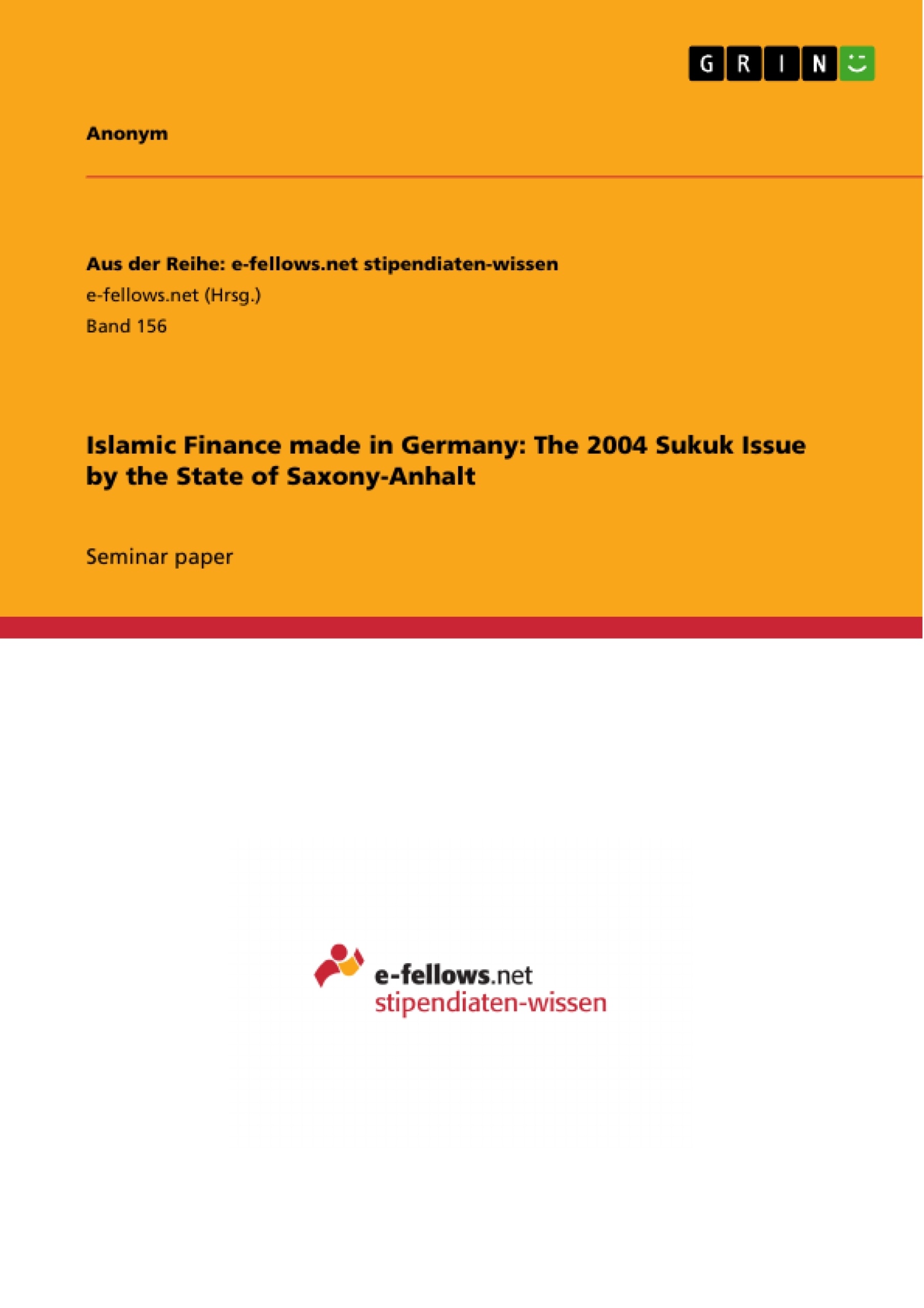Those who live off the interest on loans will never stand up, except in the way those whom Satan knocks down with a fit rise up again. That is because they say: "Trading is just like taking interest." Yet God has permitted trading and forbidden taking interest (qurantoday.com, 2011). The German state Saxony-Anhalt, in July 2004, took the unprecedented step to benefit from this Islamic rule and raised debt in a new way. By issuing a “sukuk” debt instrument, conforming to Islamic principles, the Bundesland located in East Germany and by West German standards considered as under-developed was the first one among the OECD countries to enter a new path of raising public funds (rundschau-online.de, 2009). While there are until today no genuine Islamic banks in Germany – unlike the situation in Great Britain -, the ministry of finance of the state was convinced of the opportunities linked to such a financial structuring, aiming to raise €100m.
This report analyzes the given German sukuk issuance and compares and contrasts it to conventional products. For this, I will first give a general overview of the chosen product, describing the rationale behind the instrument, and then explain in detail the specific features relating it to Islamic finance. I will then discuss key differences and similarities of the financial instrument vis-à-vis regular products, including demand and supply considerations, before concluding by giving a view on the overall situation of Islamic finance in Germany.
Inhaltsverzeichnis (Table of Contents)
- Introduction
- Overview of the Saxony-Anhalt Sukuk
- Development
- Discussion and Conclusion
Zielsetzung und Themenschwerpunkte (Objectives and Key Themes)
This report provides an analysis of the 2004 Sukuk issuance by the German state of Saxony-Anhalt, comparing and contrasting it with conventional financial products. The report aims to explore the rationale behind the Sukuk, its specific features, and its key differences and similarities to traditional instruments.
- The rise of Islamic finance in Germany
- The structure and features of the Saxony-Anhalt Sukuk
- Comparison of Sukuk to conventional debt instruments
- The potential and challenges of Islamic finance in Germany
- The impact of the Saxony-Anhalt Sukuk on the market for Islamic finance
Zusammenfassung der Kapitel (Chapter Summaries)
- Introduction: The report introduces the concept of Islamic finance and its principles, highlighting the state of Saxony-Anhalt's pioneering role in issuing the first European-based Islamic bond (Sukuk) in 2004.
- Overview of the Saxony-Anhalt Sukuk: This section provides background information about the Sukuk, discussing the state's financial situation, its motivation for issuing the Sukuk, and its target investors.
- Development: This section delves into the structure of the Saxony-Anhalt Sukuk, explaining the Sukuk Al Ijara framework and its implementation in the transaction. It highlights the role of the Special Purpose Vehicle (SPV) and the lease-back arrangement with the state.
Schlüsselwörter (Keywords)
This report focuses on Islamic finance, Sukuk, Saxony-Anhalt, Germany, conventional debt instruments, financial structuring, asset-backed securities, Shari'ah compliance, SPV, lease-back arrangements, and the impact of Islamic finance on the German market.
- Arbeit zitieren
- Anonym (Autor:in), 2011, Islamic Finance made in Germany: The 2004 Sukuk Issue by the State of Saxony-Anhalt, München, GRIN Verlag, https://www.grin.com/document/176319



